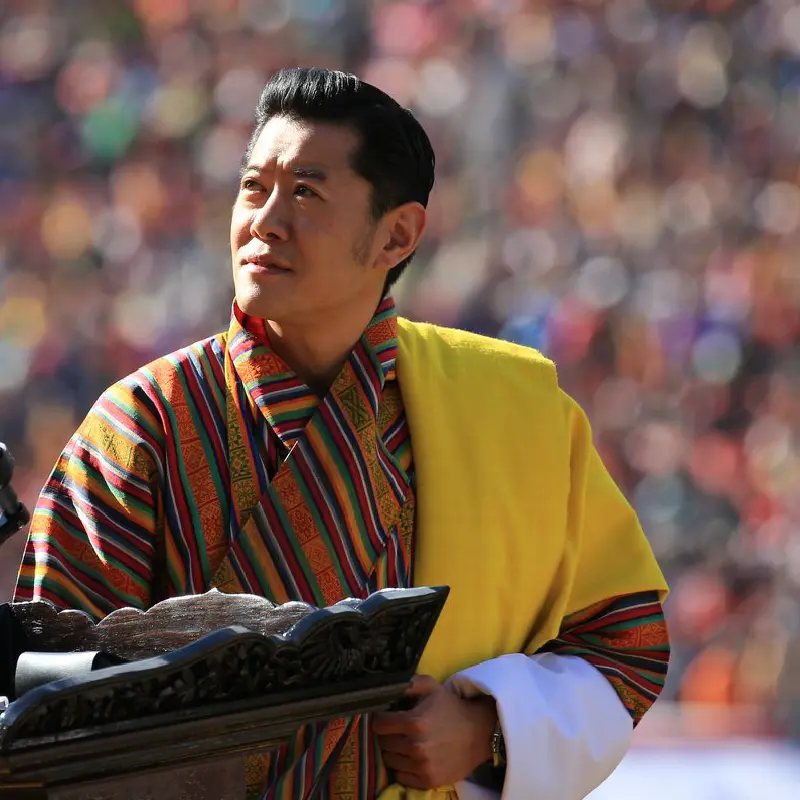
The ADB and OECD, in collaboration with the Royal Government of Bhutan Anti-Corruption Commission, are organising the ACI 2024 Seminar on Government Incentives for Corporate Anti-Corruption Compliance in Thimphu, Bhutan on 25-27 September 2024.
The ACI 2024 Seminar brings together anti-corruption experts from the governments of its 34 member economies, as well as representatives from civil society, international organisations, and the private sector.The meetings aims to share good practices and build the capacities of participants in developing government policies regarding incentives.
The session will examine the landscape of international anti-corruption and business integrity standards, such as the OECD Anti-Bribery Convention and its 2021 Anti-Bribery Recommendation, the OECD Recommendation on Public Integrity, and the Multilateral Development Bank General Principles for Business Integrity Programmes.

Head of the Anti-Corruption Division
OECD

Team Lead, Anti-Corruption Hub for Southeast Asia and the Pacific
UNODC

Advisor Office of Head
Asian Development Bank

Senior Manager
Organisation for Economic Co-operation and Development

Assistant Director
Corrupt Practices Investigation Bureau
In developing a clean business environment, assessing risks related to business integrity is crucial. This session will discuss integrity risk assessment, particularly in areas such as international business transactions, public procurement, and state-owned enterprises.

Head of Anti-Corruption and Integrity in Government Division
Directorate for Public Governance, OECD

Resident Representative and Senior Economist for Bhutan
World Bank Country Office

Country Director, Asia Regional Office in the Philippines
Center for International Private Enterprise
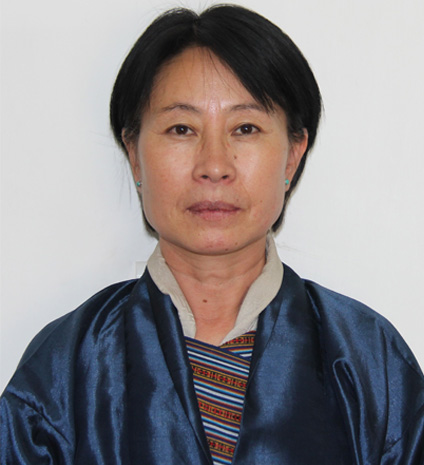
Hon'ble Secretary
Ministry of Industry, Commerce and Employment
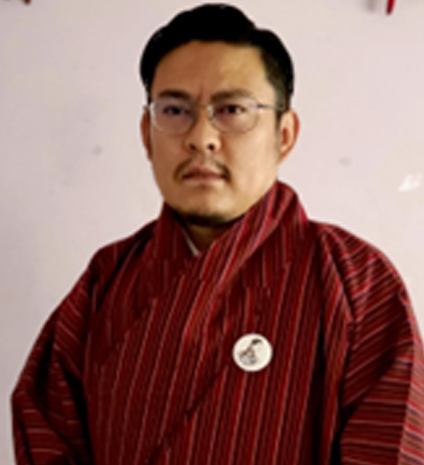
President
Construction Association of Bhutan

CEO
Druk Holding and Investments
This session will discuss practical policy instruments and implementation mechanisms that effectively support business integrity through robust policy tools and mechanisms.
Discussions will focus on implementing ethical standards such as anti-corruption compliance programmes or measures (especially for SMEs), codes of conduct, establishing comprehensive internal control systems, implementing whistleblower protection mechanisms and enforcing anti-corruption regulations.

Policy Analyst and Manager for Asia-Pacific and Europe
OECD

Chief Technical Adviser
UNDP Pacific

Team Lead, Anti-Corruption Hub for Southeast Asia and the Pacific
UNODC

Ethics, Risk & Compliance Head
Novartis Asia Pacific Pharmaceuticals

President
Bhutan Chamber of Commerce & Industry
Public-Private Partnerships are efficient channels to foster joint efforts from public authorities, business organisations, professional associations and civil societies against corruption.
This session will discuss examples of public-private partnerships that help achieve fundamental cultural changes from different stakeholders in the fight against corruption.

Legal Analyst
Anti-Corruption Division, OECD

Chief Technical Adviser
UNDP Pacific

Ethics, Risk & Compliance Head
Novartis Asia Pacific Pharmaceuticals

Head
Investments and Corporate Governance Division,
Ministry of Finance

Country Director
Asia Regional Office in the Philippines
Center for International Private Enterprise
Protecting the company’s reputation, along with avoiding sanctions, are key drivers for corporate business integrity and anti-corruption compliance efforts. To complement sanctions, governments should provide effective frameworks to incentivize the private sector to adopt anti-corruption and integrity measures. Finding the right balance between carrots and sticks is a common challenge in many economies.
This session will discuss how governments can develop and implement an appropriate mix of sanctions and incentives for encouraging business integrity, building on the 2024 OECD/UNODC/UNGC “Resource Guide on State Measures for Strengthening Business Integrity”.

Head of Sustainability Governance
UN Global Compact Network, Australia

Ethics, Risk & Compliance Head
Novartis Asia Pacific Pharmaceuticals

Senior Manager
Organisation for Economic Co-operation and Development

Senior Legal Officer, Fraud Prevention and Anti-Corruption Branch
Australia Office of the Attorney General

Commissioner
Revenue Intelligence Division
Department of Revenue and Customs
The session will explore how governments can promote business integrity by granting incentives through public procurement contracts and other public advantages, such as public subsidies, licences, tax benefits and contracts funded by official development assistance.
Topics for discussion will include:

Advisor Office of Head
Asian Development Bank
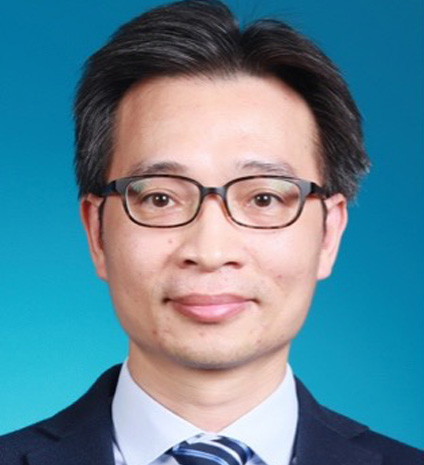
Assistant Director/International Cooperation
Independent Commission Against Corruption

Chief Research Officer
Centre for Bhutan & GNH Studies

Country Director, Asia Regional Office in the Philippines
Center for International Private Enterprise
The session will explore how governments can provide reputational incentives by promoting recognition of business integrity efforts. In addition, it will discuss the potential for governments to debar companies from public contracts in case of corrupt practices.
Topics for discussion will include:

Team Lead, Anti-Corruption Hub for Southeast Asia and the Pacific
UNODC

Head of Sustainability Governance
UN Global Compact Network, Australia

Integrity Specialist
Office of Anticorruption and Integrity
Asian Development Bank
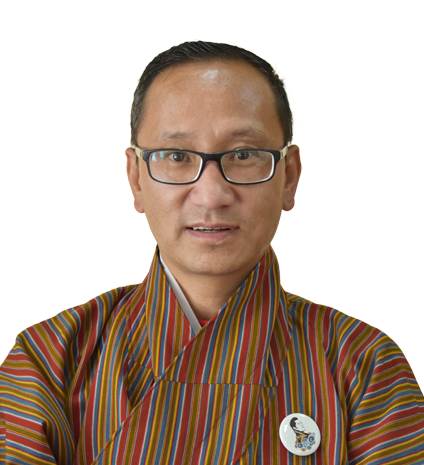
Director
Department of Professional Support
Anti-Corruption Commission
The session will discuss the role of governments in providing training and guidance to enhance ethical behaviour within the private sector. It will also explore how governments can ensure that companies receiving incentives have genuine and effective internal controls and compliance programmes or measures in place.
Topics for discussion will include:

Head of Anti-Corruption and Integrity in Government Division
Directorate for Public Governance, OECD

Chief Technical Adviser
UNDP Pacific

Directorate of Anti-Corruption in Business Entities
KPK, Indonesia
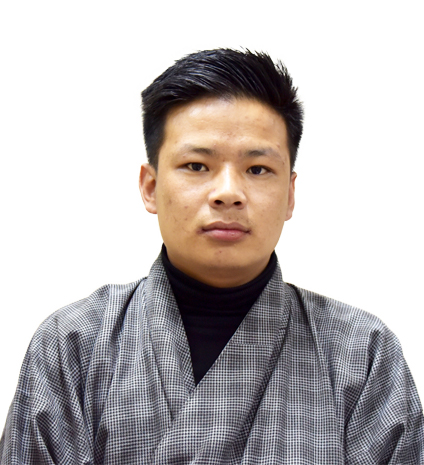
Head of Prevention Division
Department of Prevention & Education
Anti-Corruption Commission

Principal Corruption Prevention Officer
Fiji Independent Commission Against Corruption
There is a growing number of international trade agreements and investment frameworks that include anti-corruption & integrity provisions, aiming to set out a trustworthy environment that attracts quality investment and is conducive to sustainable growth. The Comprehensive and Progressive Agreement for Trans-Pacific Partnership (CPTPP) and Indo-Pacific Economic Framework (IPEF), for example, identify corruption as a major impediment to free trade and investment and set forth integrity requirements for governments and companies.
This session will discuss the anti-corruption & integrity requirements in international trade agreements and Investment frameworks. It will also review the drivers for business integrity and anti-corruption reforms that contribute to the broader sustainable socio-economic growth of the region.

Head of the Anti-corruption Division, OECD

Directorate Interagency Cooperation
KPK, Indonesia

Team Lead, Anti-Corruption Hub for Southeast Asia and the Pacific
UNODC

Advisor Office of Head
Asian Development Bank

Senior Legal Officer, Fraud Prevention and Anti-Corruption Branch
Australia Office of the Attorney General

Country Director, Asia Regional Office in the Philippines
Center for International Private Enterprise
Public-private partnerships and collective action initiatives are effective channels to promote business integrity. The session will build on the lessons learned from the Southeast Asia Collective Action Workshop, organised in August 2024 in Bangkok, Thailand. It will also explore how public-private partnerships and collective action can incentivise companies, including SMEs, to promote business integrity through mechanisms such as integrity pacts, certification, education and training.

Analyst
Anti-Corruption Division, OECD

Head of Sustainability Governance
UN Global Compact Network, Australia

Coordinator, Stakeholder Engagement
UN Global Compact Network Bangladesh

Treasurer,
Board of Directors,
Transparency International PNG

Vice President
Thailand Collective Action against Corruption
The 2021 OECD Anti-Bribery Recommendation highlights the importance of incentivising and rewarding good corporate behaviour by requesting member countries to consider taking into account voluntary disclosures to law enforcement as a mitigating factor for the application of sanctions for foreign bribery.
This session will address the role of self-reporting in detecting corruption and related offences and seeks to examine effective strategies, regulatory frameworks, and incentives that encourage companies to voluntarily disclose wrongdoing in their operations. Discussions will focus on developing guidance to aid companies in understanding the benefits and processes of self-reporting. The session aspires to identify actionable good practices that foster ethical business practices and robust enforcement of anti-bribery laws.
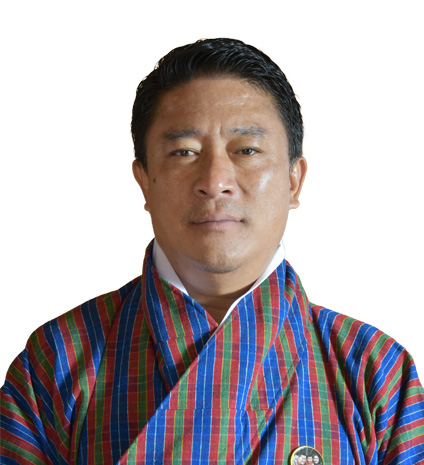
Commissioner
Anti-Corruption Commission of Bhutan

Team Leader of Corporate Crime and Foreign Bribery Team
Australian Federal Police

Anti-Corruption Coordinator & the Singapore Rep.
International Anti-Corruption Coordination Centre
This session will present an overview of current corporate liability frameworks in the Asia Pacific region. It also aims to provide a comprehensive examination of the challenges faced by prosecutors and investigators in prosecuting legal persons for corruption and related offences.
Speakers will share case studies and practical insights into the complexities associated with investigating and obtaining evidence from corporate defendants. Participants will be invited to join in the discussion and share details of their countries’ corporate liability models to further inform the discussion.

Legal Analyst
Anti-Corruption Division, OECD
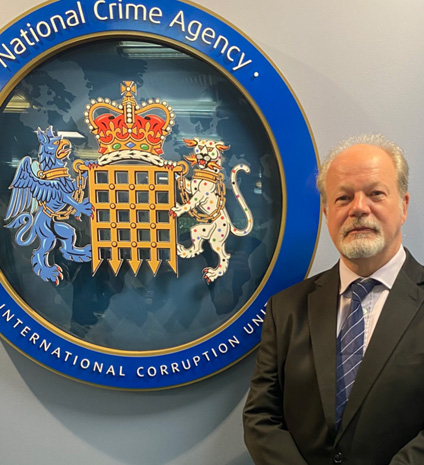
Head of International Corruption Unit
National Crime Agency
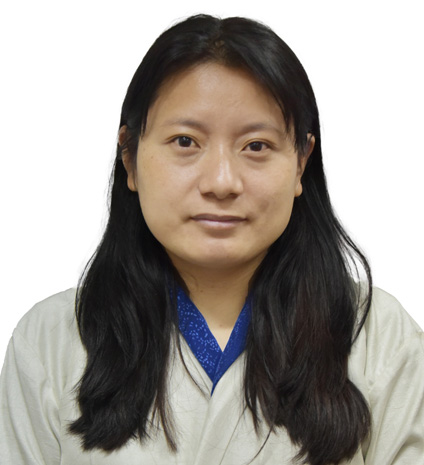
Head, Legal Division
Anti-Corruption Commission of Bhutan
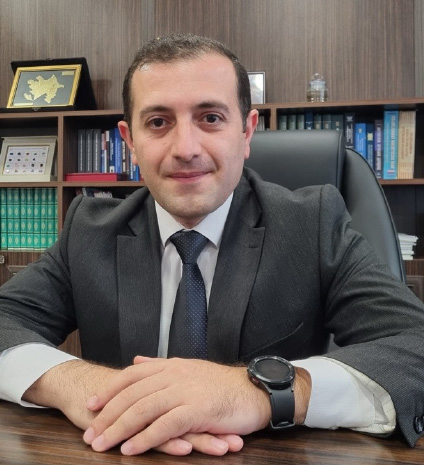
Head of Preventive Measures & Inquiry Department,
Prosecutor's Office of the Republic of Azerbaijan
Non-trial resolutions (NTRs) have become a decisive mechanism in addressing complex transnational bribery and corruption cases, facilitating the resolution of such cases without the need for full court proceedings. The OECD has observed that about 80% of transnational bribery cases are resolved through these mechanisms, reflecting their significant role in modern anti-corruption efforts. The increasing recognition of NTRs among ACI economies, including recent implementation in Singapore and pending reforms in Thailand, highlights the global shift towards adopting these frameworks. This session will delve into current standards of due process, transparency, and accountability linked to the use of these mechanisms to resolve cases of corruption and related offences.

Director General
Department of Investigation
Anti-Corruption Commission of Bhutan

Legal Analyst
Anti-Corruption Division, OECD
Non-trial resolutions (NTRs) have become a decisive mechanism in addressing complex transnational bribery and corruption cases, facilitating the resolution of such cases without the need for full court proceedings. The OECD has observed that about 80% of transnational bribery cases are resolved through these mechanisms, reflecting their significant role in modern anti-corruption efforts. The increasing recognition of NTRs among ACI economies, including recent implementation in Singapore and pending reforms in Thailand, highlights the global shift towards adopting these frameworks. This session will delve into current standards of due process, transparency, and accountability linked to the use of these mechanisms to resolve cases of corruption and related offences.

Director General
Department of Investigation
Anti-Corruption Commission of Bhutan

Legal Analyst
Anti-Corruption Division, OECD
Next steps by Ms Alejandra Tadeu, Legal Analyst, Anti-Corruption Division, OECD
Closing remarks by Mr. Gyeltshen, Director General, Anti-Corruption Commission, Royal Government of Bhutan

Director General
Department of Investigation
Anti-Corruption Commission of Bhutan

Legal Analyst
Anti-Corruption Division, OECD
Fighting corruption and promoting integrity in both the private and public sectors are critical to fostering an environment of trust and accountability, and conducive to sustainable and inclusive economic development. The OECD Recommendation on Public Integrity states that adherents should develop a strategic approach to mitigating public integrity risks in the public sector, most notably corruption. Some countries have opted for a single national integrity or anti-corruption strategy, although strategic integrity objectives may be located in several government documents owned by various authorities. An effective strategic approach for public integrity should be based on reliable evidence to identify key public integrity risks, developed in consultation with key stakeholders through existing government procedures for strategy development, and adequately implemented and monitored.

Head of Anti-Corruption and Integrity in Government Division
Directorate for Public Governance, OECD
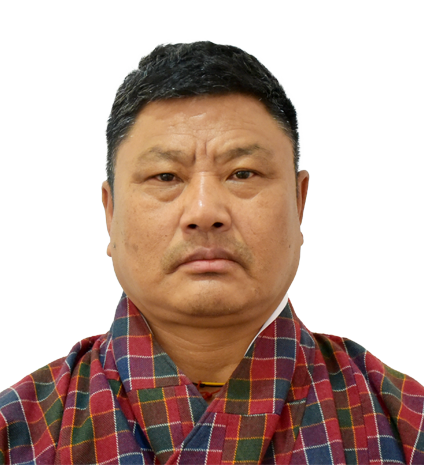
Commissioner
Anti-Corruption Commission

Anti-Corruption Analyst
KPK Indonesia

Deputy Programme Coordinator/Public Sector of the Community Relations Department

Executive Director of Prevention & Engagement Division
ICAC, Papua New Guinea

Chief Manager
Anti-Corruption Policy Monitoring Group
Anti-Corruption Agency, Kazakhstan
Ensuring that public officials act with integrity is essential to safeguarding the public interest. For public officials to be held accountable for their actions, they must act in a transparent manner. Disclosure of assets through mandatory declarations of assets and interests are a useful mechanism for anti-corruption authorities to assess whether an official has acquired unjustified wealth. Beneficial ownership transparency mechanisms can uncover complex corporate structures and reveal who really benefits from owning an asset.
This session will focus on the use of technology to promote transparency in asset declaration systems to identify illicit assets, and to uncover the proceeds of corruption and tackle abuse of corporate entities through the disclosure of beneficial ownership.

Policy Analyst and Manager for Asia-Pacific and Europe
OECD

Senior Legal Officer, Fraud Prevention and Anti-Corruption Branch
Australia Office of the Attorney General

Head of Asset Declaration Management Division
Department of Prevention & Education
Anti-Corruption Commission
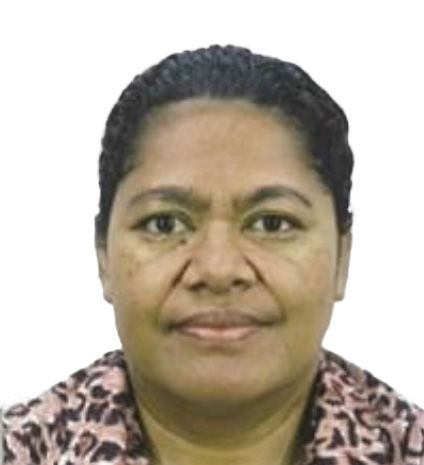
Professional Standard Officer
Independent Commission Against Corruption

Governance Specialist
World Bank

His Excellency Hon’ble Minister
Ministry of Finance
His Excellency Lyonpo Lekey Dorji upon conferment of Dakyen by His Majesty The King assumed the charge of the Ministry of Finance on January 28, 2024.
Mr. Lekey possesses vast experience as a civil servant, corporate executive, private sector entrepreneur and startup investor. He also carries extensive international development expertise having worked as consultant to the World Bank, ADB, PricewaterhouseCoopers and other International Organizations together with corporate management knowledge through leadership in the Board of Directors and Commissions.
He is a seasoned public figure having served as the Member of Parliament and as the Minister of the erstwhile Ministry of Economic Affairs (2016-2018) during the second elected Government (2013-2018). Mr. Lekey is therefore, proficient in the affairs of the legislative affairs, parliamentary committees and international engagements.
Academically outstanding, Mr. Lekey holds an electrical and telecommunications engineering degrees as an International Telecommunication Union (ITU) and Fulbright fellowships from the UK and US respectively.

His Excellency Hon’ble Minister
Ministry of Industry, Commerce & Employment
His Excellency Lyonpo Namgyal Dorji is the Minister for Industry, Commerce & Employment. Prior to joining politics, he served in various capacities in the Ministry of Foreign Affairs and External Trade. He has a master degree in International Relations and Diplomacy from the Australian National University (ANU).
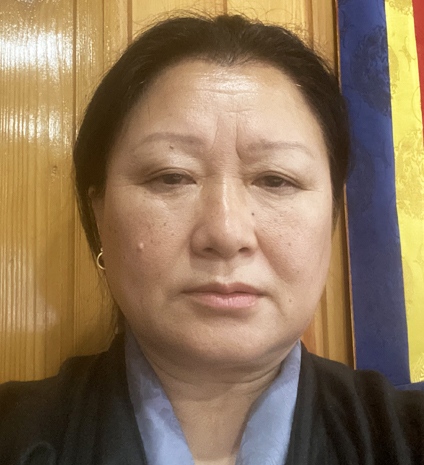
His Majesty the King appointed the Third Commission of the ACC on 14 October 2020. Chairperson Deki Pema was the former Commissioner of Election Commission of Bhutan (ECB). She served as the Commissioner of ECB for two consecutive Five-Year terms under the Constitution from 2010 to 2020. She was also the Election Commissioner of the ECB prior to the adoption of the Constitution in 2008 for a period of five years (2006-2010). The Chairperson started her career as Trainee Officer in Dzongkhag Administration of Trashigang in 1991 and also has vast experience as a Development Planner having served the Policy & Planning Division of the Ministry of Agriculture for over 13 years.

Advisor, Office of the Head
Office of Anti-Corruption and Integrity
Asian Development Bank
Mr. Kiew is an international expert in the field of integrity risk strategy and management, anti-corruption law, policy, and investigations. He is currently the Advisor in the Office of Anti-Corruption and Integrity (OAI) at the Asian Development Bank (ADB), where he manages the front office operations of OAI, including policy and strategic advice on anti-corruption and integrity policies and controls, developing integrity capacity building to ADB’s developing member countries, technology services, and knowledge and communications.
Mr. Kiew has a proven track record of managing complex and high-profile investigations of prohibited practices in relation to the development finance operations of multilateral institutions. He led the external investigations team at the Office of the Chief Compliance Officer of the European Bank for Reconstruction and Development (EBRD), where he oversaw and directed external investigations of counterparties, developed processes and controls to mitigate and manage corruption and fraud risk in bank operations, and delivered training programs on integrity and monitoring standards to EBRD staff and counterparties. Prior to that role, he evaluated anticorruption policies and implementation of OECD member countries under the OECD Anti-Bribery Convention. As a lawyer in the private sector, he represented multinational companies in corruption, fraud, and money laundering investigations and assisted them in developing anticorruption compliance programs.

Julio Bacio Terracino is the Head of the Anti-Corruption and Integrity in Government Division at the OECD. He has 20 years of experience on anti-corruption, and in his function, he advises countries in the design and implementation of policies that ensure public integrity and prevent corruption. He has contributed to the design of analytical frameworks for the creation of public integrity systems, building a culture of integrity and ensuring accountability. He also has expertise in addressing corruption in public procurement, as well as promoting transparency and integrity in political processes. Previously, Julio was an independent consultant on anti-corruption, a human rights and governance officer at the United Nations Office of the High Commissioner for Human Rights, and a legal adviser in the private sector. Of Argentinian and Italian nationality, Julio obtained his PhD and Master’s degree in International Law at the Graduate Institute of International Studies, Geneva and his Bachelor of Laws at the University of Buenos Aires.

Julia Fromholz is the Head of the Anti-Corruption Division in the OECD’s Directorate for Financial and Enterprise Affairs (DAF). In this role, she leads the OECD’s work on combating bribery in international business and promoting business integrity. The Anti-Corruption Division is the secretariat to the OECD’s Working Group on Bribery, which monitors implementation of the OECD Convention on Combating Bribery of Foreign Public Officials in International Business Transactions (the Anti-Bribery Convention), a legally binding international agreement, and related instruments. The Division also engages in dialogue and training with businesses, civil society organizations, and non-Member countries to encourage high standards for anti-corruption laws and policies. Before joining the OECD in 2024, Ms. Fromholz spent twenty years in civil society, academia, and the U.S. Department of State, leading programs and policy development on the rule of law and international human rights, after having started her career as a management consultant and lawyer in the private sector.
The session will examine the landscape of international anti-corruption and business integrity standards, such as the OECD Anti-Bribery Convention and its 2021 Anti-Bribery Recommendation, the OECD Recommendation on Public Integrity, and the Multilateral Development Bank General Principles for Business Integrity Programmes.